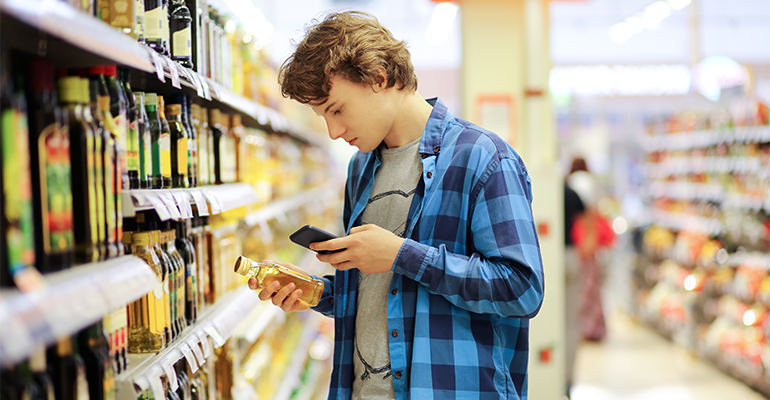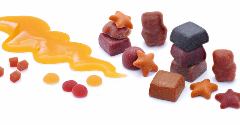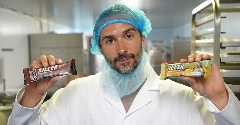News
Grocery retail shows cautious optimism and stabilisation
15 May 2025Health and functionality, personalisation, convenience, advancing technologies, and sustainability dominate the grocery retail landscape and the shoppers of the future.

EuroCommerce, a European organisation representing the retail and wholesale sector, and global management consulting company McKinsey have released their latest report on the grocery retail market. The State of Grocery Retail 2025: Europe outlines a challenging yet hopeful sector that sees grocers plan and prepare for future advancements and opportunities.
“The grocery retail landscape in 2025 is characterised by cautious optimism and stabilisation,” Christel Delberghe, director general of EuroCommerce, told Ingredients Network. However, the current state of grocery retail suggests it may be on the cusp of a hopeful bounce back. After several challenging years marked by economic pressures and shifting consumer behaviours, the sector is beginning to see signs of recovery.
Grocery: A tale of growth and disruption
Grocery sales in Europe grew by 2.4% in 2024, slightly above the food price inflation rate.
“This growth, although modest, indicates stabilisation after years of strong downtrading,” Delberghe explained. Discounters and private labels continue to gain market share, reflecting consumers’ ongoing search for value.
Yet, despite these hikes, the sector still faces significant challenges, including cost pressures, geopolitical uncertainties, and the need for digital and sustainable transformations. “The recent US tariffs announcements could also have further impact on value chains, costs and consumer confidence, which is not accounted for in the report,” Delberghe added.
Creating a health-conscious retail environment
Consumers in 2025 are increasingly demanding healthier and more personalised shopping experiences. There is a growing appetite for healthy and functional foods, particularly among gen Z – those born between 1997 and 2021 – who, according to EuroCommerce, are the most health-conscious cohort.
Today’s consumers are dissatisfied with the current range of options available in grocery stores. The survey shows that just over a third (35%) of consumers say their main grocer offers the right assortment of F&B products for a healthy diet.
The report shows that shoppers’ intention to focus on healthy eating and nutrition has increased slightly in 2025, from 30% of respondents to 31%. Health-focused, functional, and fresh foods are expected to grow the most, with power bars, protein-rich options, and sports drinks proving popular. Looking at the next five years, the report indicates that consumers plan to increase their spending on health-related food and beverage (F&B) purchases.
Increasing engagement through personalisation
Personalisation has become a new standard for engagement, with more than half (56%) of all shoppers likely to become repeat buyers after a personalised experience. High levels of consumer engagement and personalisation fuel brand and product loyalty.
According to the report, retailers focusing on personalisation can achieve a revenue increase of between 4% and 6% and improved customer retention. The report’s findings also indicate that only one in four consumers thinks retailers engage in effective personalisation efforts, suggesting it is a core trend that is expected to continue growing.
Appealing to the no-cooking trend
Consumers are also looking for convenience, preferring ready-to-eat and ready-to-heat meal options. The no-cooking trend, especially popular among gen Z, has seen an increase in the acceptance of convenient, on-the-go, and ready-to-heat options.
Over three-quarters (77%) of gen Z shoppers and 72% of millennials buy food on the go at least once a month. Furthermore, 42% of gen Z shoppers and 37% of millennials purchase ready-to-eat meals at least once a week.
Preparing for sustainable shifts
Despite a slight decline in the intent to buy environmentally friendly products, sustainability remains a key concern, especially among younger consumers. Today’s shoppers expect comprehensive sustainability information, which is among the challenges retailers face.
In 2025 and 2026, new sustainability-led regulations and directives will be a key focus of the retail landscape. As the European Union’s Corporate Sustainability Reporting (CSRD), the European Union’s Deforestation Regulation (EUDR), the Packaging and Packaging Waste Regulation (PPWR), and the Corporate Sustainability Due Diligence Directive enter the F&B sector, grocers are putting their efforts and investments in preparing for their implementation.
How can F&B brands and manufacturers respond?
Retailers strive to meet these consumer demands by focusing on differentiation, efficiency and leveraging technology. “They are enhancing their private label offerings, not just as cheaper alternatives but as differentiated brands that compete with A-brands,” said Delberghe.
To build a consistent experience between physical and digital space, retailers are also investing heavily in digital and AI technologies to personalise the shopping experience and improve operational efficiency. The shift requires brands and manufacturers to adapt by focusing on quality, innovation and sustainability.
Closer collaboration is crucial to ensure retailers meet consumers’ evolving demands and leverage data and technology to remain competitive. “These strategic responses are crucial for navigating the ongoing challenges and seizing growth opportunities in the grocery retail sector,” added Delberghe.
Related news

How younger consumers are redefining ingredient choices and rejecting brand loyalty
18 Nov 2025
Gen Z and millennial consumers’ preferences for transparency, functionality, and purpose are “redefining the very nature of consumption itself”, says SPINS.
Read more
Hybrid formats and flexible positioning to disrupt category norms in 2026
17 Nov 2025
Trend forecasters expect food and drink to move more fluidly across occasions, functions, and formats as consumers seek versatility, novelty, and convenience.
Read more
Empowering innovation in fortification and colouration
13 Nov 2025
Divi’s Nutraceuticals offers a large portfolio of innovative, high-quality ingredients for foods, beverages, and supplements, with bespoke solutions and expert support for product success.
Read more
From fruit to functional solutions: Meet Paradise Fruits at Fi Europe in Paris
13 Nov 2025
Paradise Fruits Solutions and Paradise Fruits Health will showcase their combined expertise in delivering innovative, fruit-based solutions to the food and beverage industry at the upcoming Fi Europe trade show (2-4 December 2025, Paris).
Read more
New UPF standard hoped to offer consumers ‘coherence and clarity’
10 Nov 2025
Ingredients companies are being urged to enter “a new era of partnership and innovation” following the launch of the industry’s first non-UPF verification scheme.
Read more
Cottage cheese makes a comeback as consumers call for cleaner labels
6 Nov 2025
From ice cream to dips and ready meals, cottage cheese is experiencing a renaissance as a high-protein, clean ingredient for health-conscious consumers.
Read more
Ingredient quantities mislabelled on popular protein bars, independent tests show
5 Nov 2025
Some popular protein bars contain more fat, carbs, and/or sugars than claimed on their labels, independent nutrition testing reveals.
Read more
Does promoting protein content push up plant-based sales?
27 Oct 2025
Promoting the protein content of meat-free products is a more effective sales strategy than adding carbon labels, a study of UK bakery chain Greggs suggests.
Read more
Agrigum Redefined FIBER
27 Oct 2025
Agrigum has transformed gum acacia into a natural, science-backed fibre that supports gut health, sustainability, and innovation across global food and nutrition applications.
Read more
Will Wicks’ Killer Bar harm the protein bar category?
23 Oct 2025
Joe Wicks’ deliberately dangerous protein bar is fuelling anti-UPF sentiment – but there are concerns that his messaging is misguided and could have unintended consequences.
Read more